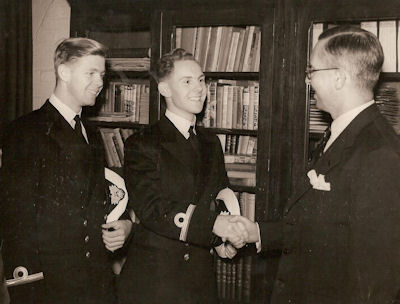Portsmouth Royal Dockyard School At 1952Course & Career DevelopmentHistory | Curriculum | Standards | Course & Career Development | School Staff | Howard George | Harri Jones | Science Class | Lunch Break | Shipwrights Class | Home |
|||
|
The syllabuses have been widened and in order to give breadth to
the education of the apprentices, French and current affairs have been
introduced. The syllabuses of the technical and school subjects have also been
widened in order to bring them into line with modern naval architecture and
engineering. |
|||

Each year shipwright apprentices who take very high places in
the final fourth year examinations are recommended for appointment as
constructor sub-lieutenants and go to the Royal Naval College, Greenwich for a
further three years of specialized instruction before they join the Royal Corps
of Naval Constructors. Electrical fitters are similarly eligible for further
specialized training as electrical engineers in the Service. Constructor Sub
Lieutenats Lou Daniels & Malcolm Oliver were awarded these distinctions in
the 1955 Upper School examinations and are congratulated by John Goss, the
Principal. |